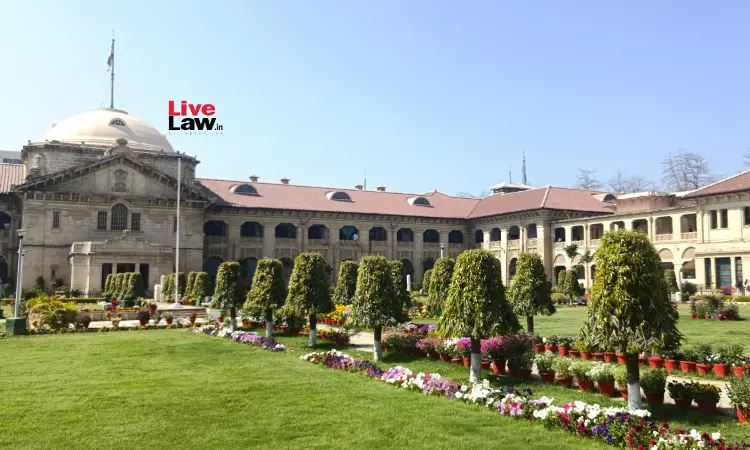Matrimonial Discord Common In Domestic Life; Torture Sans Intent To Abet Suicide Won't Attract S. 306 IPC: Allahabad High Court
Sparsh Upadhyay
2 Oct 2025 7:50 PM IST

Source: DocBook
The Allahabad High Court has recently observed that matrimonial discord and differences in domestic life are quite common and if due to this reason, either husband or wife commits suicide, then it cannot be held that due to their abetment, the deceased committed suicide.
A bench of Justice Sameer Jain observed thus while setting aside the order of a Sessions Court which had rejected a discharge application filed by a woman and her parents facing trial under Section 306 IPC for allegedly abetting the suicide of her husband.
The single judge observed during a matrimonial quarrel stating words "he should die" and thereafter deceased committing suicide does not constitute offence punishable under Section 306 IPC as it cannot be said that due to the abetment, the deceased committed suicide.
Background
The FIR in the case was lodged in November 2022 alleging that the deceased (husband), whose marriage had taken place with revisionist no.1 (wife) around seven years earlier, committed suicide due to continuous harassment and insult at the hands of his wife and her parents.
It was alleged that the wife had earlier filed a criminal case under Sections 498-A, 323, 504, 506 IPC and Section 3/4 of the Dowry Prohibition Act, and despite settlement, she had not withdrawn it.
According to the FIR, on November 8, 2022, revisionist nos. 2 and 3 (the in-laws of the deceased) came to the matrimonial home, and during a quarrel purportedly told him “he should die”. On November 13, 2022, the son of the informant (O.P. No.2) was found dead, having committed suicide.
After investigation, a charge sheet was filed against the wife and her parents, and the Sessions Court took cognizance of the same. The trial court dismissed their discharge plea on October 19, 2023, pursuant to which, he moved the HC with the present revision plea.
Submissions
Counsel for the revisionists argued that allegations of abetment were false and that quarrels and disputes between husband and wife were routine.
It was contended that there was no material to suggest intentional instigation, and even the alleged statement made on November 8, 2022, could not amount to abetment.
On the other hand, counsel for the State and the complainant opposed the revision as they submitted that there were ample statements and evidence showing torture, insult and instigation, including the remark made by the in-laws, which prima facie made out an offence under Section 306 IPC.
High Court's order
The Court, at the outset, noted that if material available on record prima face does not constitute the alleged offence then accused should be discharged and not otherwise
Furthermore, the bench referred to Section 306 IPC to note that instigation is one of the essential ingredients for this offence and that instigation means to provoke, incite or encourage a person to do an act.
Justice Jain further noted thus:
"Mens rea to abet the commission of suicide is essential for offence punishable under Section 306 IPC. If husband or wife or their relatives are being either harassed or tortured but without any intention to commit suicide, then it cannot be said that there was abetment...even if entire material collected by I.O. during investigation are accepted as it is then also it could not be reflected that revisionists were having mens rea to abet the deceased for suicide".
The Court further stressed that even if witnesses stated that the in-laws told the deceased “he should die” during a quarrel, such words uttered in the heat of the moment did not satisfy the requirement of instigation. The material did not show that the deceased was left with no option but to commit suicide.
Against this backdrop, the Court found that no prima facie offence under Section 306 IPC was made out against the revisionists. Thus, their revisioin plea was allowes and the impugned order of dismissal of their discharge plea was set aside.
Case title - Rachana Devi And 2 Others vs. State of U.P. and Another
Case citation :


